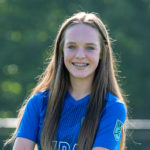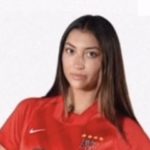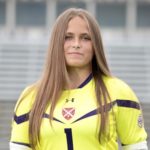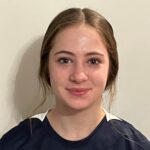PSW Q&A: Maryland coach Sasho Cirovski talks recruiting, development, NCAA reforms
By Charles Boehm
Crafting two national titles, six College Cup (final four) appearances, four ACC championships, 16 NCAA Tournament invites and dozens of future pro players over his 18-year tenure, University of Maryland head men’s soccer coach Sasho Cirovski has become an institution in College Park.
After the relative disappointment of last year’s NCAA Tournament quarterfinals exit at the hands of Michigan, Cirovski and the Terrapins have reloaded for 2011 and look ready to challenge the nation’s elite once again, opening the campaign with an assured 3-0 win over St. John’s on Friday. Potomac Soccer Wire had the opportunity for an extended chat with him on the eve of the new season.
PSW: First off, what’s your general outlook on the 2011 Terps?
SC: I like our team very much. We have a lot of talent and a lot of kids who are very hungry to get an opportunity to play, because we lost so many players last year. It’s a team that’s going to probably have some growing pains early in the year. But I like the chemistry of the team, I like the talent, and I’m excited to get going.
PSW: How do you see the Atlantic Coast Conference (ACC) shaping up this season?
SC: I think it’s going to be, overall, a better league than it was last year. One team [North Carolina] went to the College Cup, which was less than we’ve had typically. I think this year you’re going to have probably four or five teams from the ACC capable of making a run to the College Cup. A lot of teams got better. We’ve lost a lot of players, I think we’ve probably had the biggest attrition along with North Carolina, but all the other teams are all going to be better. So I think it’s going to be a great league.
PSW: You’ve brought in another elite recruiting class, two of which graduated high school early in order to join you for spring workouts. How much does that help them, and the team?
SC: Well, it’s a tremendous benefit. Two years ago Patrick Mullins came in [early] in the spring and he had a great fall, becoming the ACC Rookie of the Year. I think both with Alex Shinsky and Kyle Roach, they’ve benefited a lot. Unfortunately, Shinsky’s still not 100 percent fit, because he’s been dealing with some injuries. So we’re going to bring him along patiently, but he’s going to have a big impact this year.
PSW: How do you approach the topic of early graduation with recruits?
SC: We always present it as an option to people, but we never push it, because it’s a family decision. In many cases, the players have a bad case of senioritis and they can’t wait to get out and start their college career. Spring is a very valuable time with technical and tactical development, and you get to adapt to your environment. Because our preseason is really very short, it’s only a couple weeks, this gets you a four-month head start and you become a ‘freshman-plus’ at that point. So it’s worked out well. We usually have one or two kids every year doing it.
It’s something that’s been going on for a long time, and I think it’s a huge advantage. Most of our kids, they want to play pro beyond college, so they want to get as many credits into their account and start chipping away, get a degree so they can finish here in three or three and a half years.
PSW: Conversely, we’ve heard some frustration about it from youth club coaches, who are often losing their top players for important end-of-season championships and tournaments.
SC: We have not found that to be an issue with any of our players. Typically it’s one or two kids every other year, so we have not heard from any club coaches any issues with any of that. I can see where that could become an issue if that becomes a big deal, but it’s only about the last three months of their club career, possibly. And it’s the same thing we deal with when kids leave early to go to the pros. It’s an individual choice, we’re not sitting here pushing the issue. It’s an option – if they want to pursue it, we show them the protocol.
PSW: Soccer seems to have moved towards football and basketball in terms of how top programs like yours essentially have to compete with pro teams, both in MLS and abroad, for recruits. How do you deal with that?
SC: Yeah, we’ve been dealing with it, really, since 1997. So we’ve found a nice approach in dealing with it – it forces us to have extra depth on the team every year, and that can create some problems with playing-time issues. But we’ve dealt with it, I think, very well and I think our players understand that if you’re a good player and maybe you’re playing behind a really good player, your time might come sooner than later.
PSW: How has U.S. Soccer’s Development Academy changed the recruiting landscape?
SC: It’s really no different. It’s nice to see players getting more meaningful games and I think they’re developing. But for us, we’ll go wherever we think there’s players, whether they’re in the academy or not. It hasn’t really changed what we do – we’re still trying to find the players that fit into our program, wherever they may be.
PSW: DA has also had an effect on how youth clubs structure their teams – for example, a couple of your players, like Marquez Fernandez with Baltimore Bays Chelsea, were able to go back to their old club teams for Under-19 competitions. Do you encourage that?
SC: Yeah, it’s very good. In fact, not only did Marquez and [Jereme] Raley go back to play for the Bays, but Shinsky and Roach went to play there as well. They were in the area, they met up with these guys and went back and played with the club. I think it helped them with their success this year. You know, we have some players at Real Maryland, some train and play with D.C. United Under-23s, some just kick around all summer and play [pickup]. So we’re always looking for ways to support our players getting better.
PSW: All this adds up to a year-round model, even though NCAA still doesn’t seem to want such a thing. Is there movement in that direction?
SC: Well, yeah, I think that’s been going on for a long time anyway. The top players are finding places to play and working on a year-round model. Certainly we’ve been doing that at Maryland, where our players are on a year-round development program. It’s a little bit patchwork in terms of regular season, non-traditional season, individual development, small-group development, etc. I think if you want to be a good player you need to be playing year-round and working on your game.
We’re always looking for ways to expand the college season. We got an extra week in our season starting this year with a fall week, a [more] competitive calendar now. I think there is some movement within the NCAA to have coaches to have a little more contact with the players in individual development. So we’re pushing those issues. We’re pushing for allowing some of our players to play with MLS reserve teams in the summer. That shouldn’t be hard and we’re hoping to get some resolution this year for the top players, without losing their eligibility. If you look at what the majority of the top-20 programs in the country are doing, there’s no shortage of development opportunities for the kids.
PSW: There’s so much frustration across American soccer about the NCAA’s reluctance to loosen up its limitations on the college game. But you sound optimistic about change taking place.
SC: Well, there’s a lot of inherent challenges that make some other solutions more difficult than they appear on the surface. However, I do think that there’s going to be some more respect for soccer in terms of what we’d like to do as college coaches and what is right for the game. It’s a process: The more soccer becomes significant, not only on college campuses but nationally, at the youth level, the professional level, the more power we have to make some positive changes. That’s a process that just takes time. It’s about educating all the different constituencies and working together as a group to make some positive changes.
PSW: It sounds like you’re on a similar wavelength as Claudio Reyna and other reformers at the U.S. Soccer Federation.
SC: Yes, I’m the chair of the [NCAA Division I] soccer coaches and we’ve met with Claudio, we’ve met with members of MLS, we’ve met with NCAA. We’re having meetings and discussions all the time to try to find ways that we can benefit – so the teams benefit, the players benefit, opportunities for young players coming through college benefit, and the pros benefit. We’re building relationships that can work together for the good of the game.











